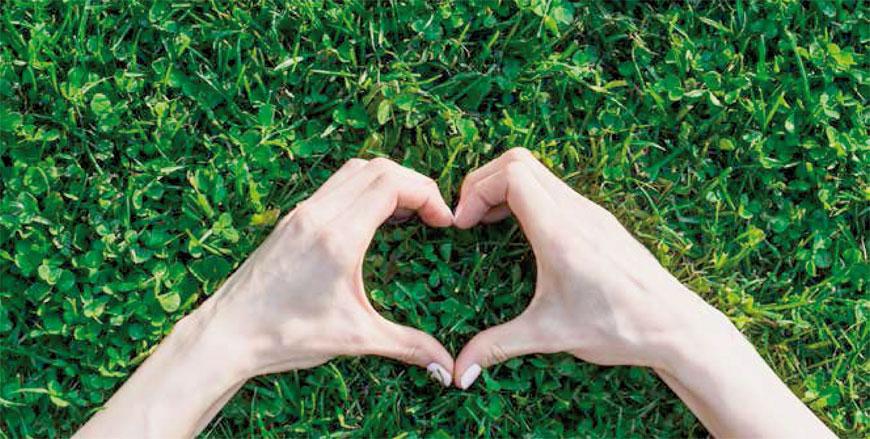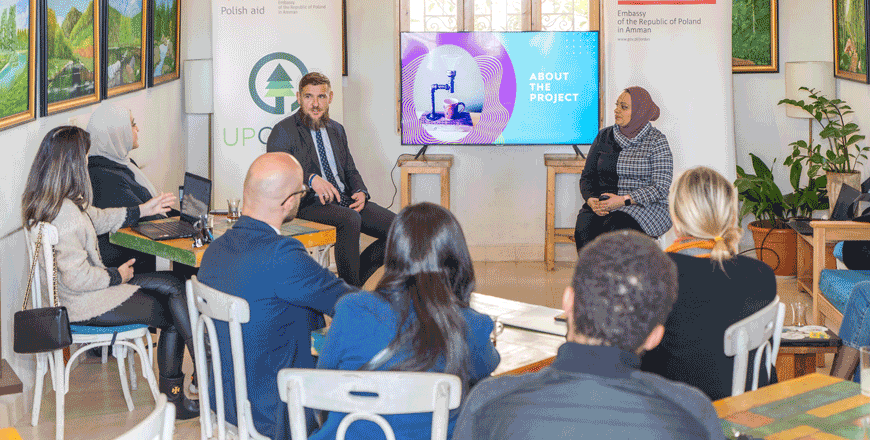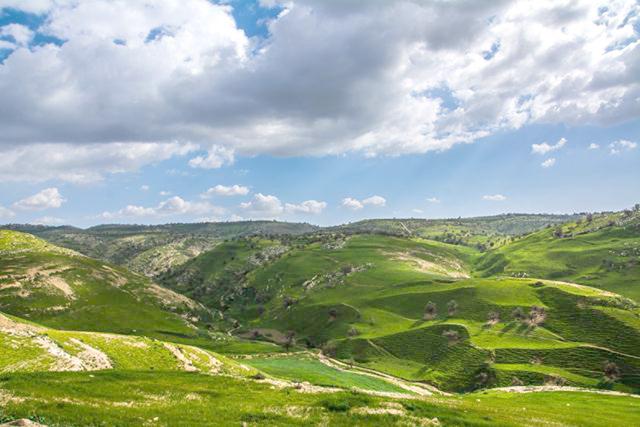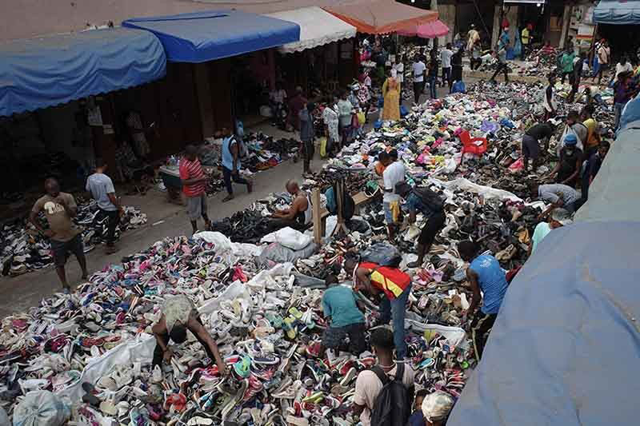You are here
Green is the new black
By Heba Nazer , Family Flavours - Jul 21,2024 - Last updated at Jul 21,2024

Photo courtesy of Family Flavours magazine
By Heba Nazer
Green Buildings and Sustainability expert
We’ve all heard about green living, green products, green trends and green behaviours as this
colour has been attached to environment-related-matters.
But what are the practical steps that we can take to join the green movement? Why is it crucial to adopt green behaviours in our day-to-day activities and why do we need to set them as our new norm and, indeed, our new black? Green living involves making conscious decisions to adopt environmentally-friendly-practices in every aspect of our lives.
Three pillars of Sustainabilty
Adopting green practices Celebrating World Environment Day can be enjoyable and educational for your entire family. It’s a great chance to adopt green practices and emphasise the importance of sustainability to save the environment and ensure that “green will be your new black”.
Here are three main pillars for sustainability:
1. Environmental sustainability focuses on the preservation of natural resources and ecosystems, ensuring that our planet caters for future generations.
2. Social sustainability ensures social equality, cohesion and well-being.
3. Economic sustainability involves creating systems that balance financial growth and generate profit without a negative impact on the environment and social well-being Together, these elements ensure a healthy sustainable world for coming generations.
Embracing green living Green living is gaining momentum as an essential response to the critical challenges of climate change.
Scientists have linked climate change to a range of human-related activities, including the burning of fossil fuels in factories, transportation, as well as industrial activities.
These activities release greenhouse gases such as carbon dioxide and methane into the atmosphere, trapping heat and causing global temperatures to rise. This results in the rise of sea levels, more frequent natural disasters, unpredictable weather patterns, loss of biodiversity and increased health risks.
In Jordan For a country like Jordan, these global issues are further compounded by local challenges. Jordan faces a unique set of environmental constraints such as limited energy resources, forcing us to important around 92 per cent of our total energy-we also suffer from water scarcity. By the same token, Jordan is located on the sunbelt of the sun. This means it has an excessive amount of solar energy that can be harnessed to produce electricity and provide energy for all economic sectors.
Our impact on the environment Climate change affects all aspects of our lives, from the food we eat to the air we breathe. It is essential for us to understand our impact on the planet and how we contribute to climate change, compelling us to take action and start reducing our carbon footprint. The carbon footprint is primarily the amount of carbon dioxide emitted in the environment due to our daily activities including the products we purchase, the content of these products and our energy consumption habits in general. You can calculate your carbon footprint online through websites such as carbonfootprint.com.
This is a very helpful tool to manage your practices and reduce your carbon footprint as an essential step to combating climate change. World environment day World Environment Day is celebrated internationally every year by millions of people across the world to raise awareness and praise environmental actions.
This year’s theme is land restoration, desertification and drought resilience. Up to 40 per cent of the planet’s land is degraded which is affecting almost half of the world’s population due to reduced agricultural productivity.
The number and duration of droughts has increased by 29 per cent which may impact over three-quarters of the world’s population by 2050 if no urgent action was taken.
Land restoration helps rebuild soil. Healthy soil is crucial because it:
Purifies water, Protects against flooding, Stores carbon dioxide effectively
Despite it being a renewable resource, it still needs 1,000 years to generate three centimeters of topsoil.
Family-friendly steps
To contribute towards saving the planet, you and your family can adopt several eco-friendly practices. Here are some you can start with:
1. Reducing energy usage through simple actions like turning off lights when leaving the room or unplugging your electronic devices and switch off the sleep mode. It is important to know that your laptop will still consume 40 per cent of its total energy when it is in sleep mode.
2. Gifting a reusable bag to your friend or family members and advise them to use it all the time while shopping instead of plastic bags. Plastic bags take around 300 years to degrade , they break down into tiny toxic particles that contaminate the soil, water and enter the food chain when animals accidentally eat them.
3. Embracing sustainable transportation such as walking, using public transport, or carpooling to reduce emissions. Carpooling can save money from commuting alone and can reduce global carbon emissions by 11 per cent.
4. Supporting local and organic materials: Local products travel shorter distances to reach you. They thus minimise fossil fuel consumption leading to lower greenhouse gas emissions from transportation.
5. Educating and empowering your children with knowledge about our environment in a fun way. You can plan this summer watching documentaries together, reading books and discussing environmental issues and challenges.
6. Community clean-up: Participate in a local clean-up event. Each family member can collect litter for an hour, which can prevent pollution, promote human health and community responsibility.
7. Planting a tree: Planting a tree in your garden helps combat climate change by absorbing carbon dioxide and storing it, as well as releasing oxygen to purify the air
8. Making an upcycling challenge: Upcycling is creating a usable product from waste or unwanted items. Upcycling is a smart way to reuse your items instead of going through the process of recycling, or directly to waste. Be creative and encourage each family member to upcycle a product for reuse at home.
9. Reducing before you recycle: There are almost three million tons of solid waste generated in Jordan whereas only 8-10 per cent of it is recycled. This highlights the importance of reducing the amount of waste at the source, followed by recycling. Sort the waste at home and take it to the closest recycling centre and remember that every bottle matters!
10. Calculating your carbon footprint: to make it more enjoyable and engaging, you can start a carbon footprint contest, rewarding your family member who reduces the most carbon emissions These are only some of many critical changes you can make. By making these conscious choices, families can significantly reduce their carbon footprint and help protect the environment for future generations.
Reprinted with permission from Family Flavours magazine
Related Articles
AMMAN — After a six-month run, the Green Business Incubator, a project with a focus on upcycling and entrepreneurship came to a close on Sun
AMMAN — Heeding the global calls for conserving the environment, a group of Jordanians and foreign residents in the Kingdom have joined the
PARIS — In H&M’s flagship Paris store it is hard to find clothes that do not claim to be made from “recycled materials”.Last year,



















